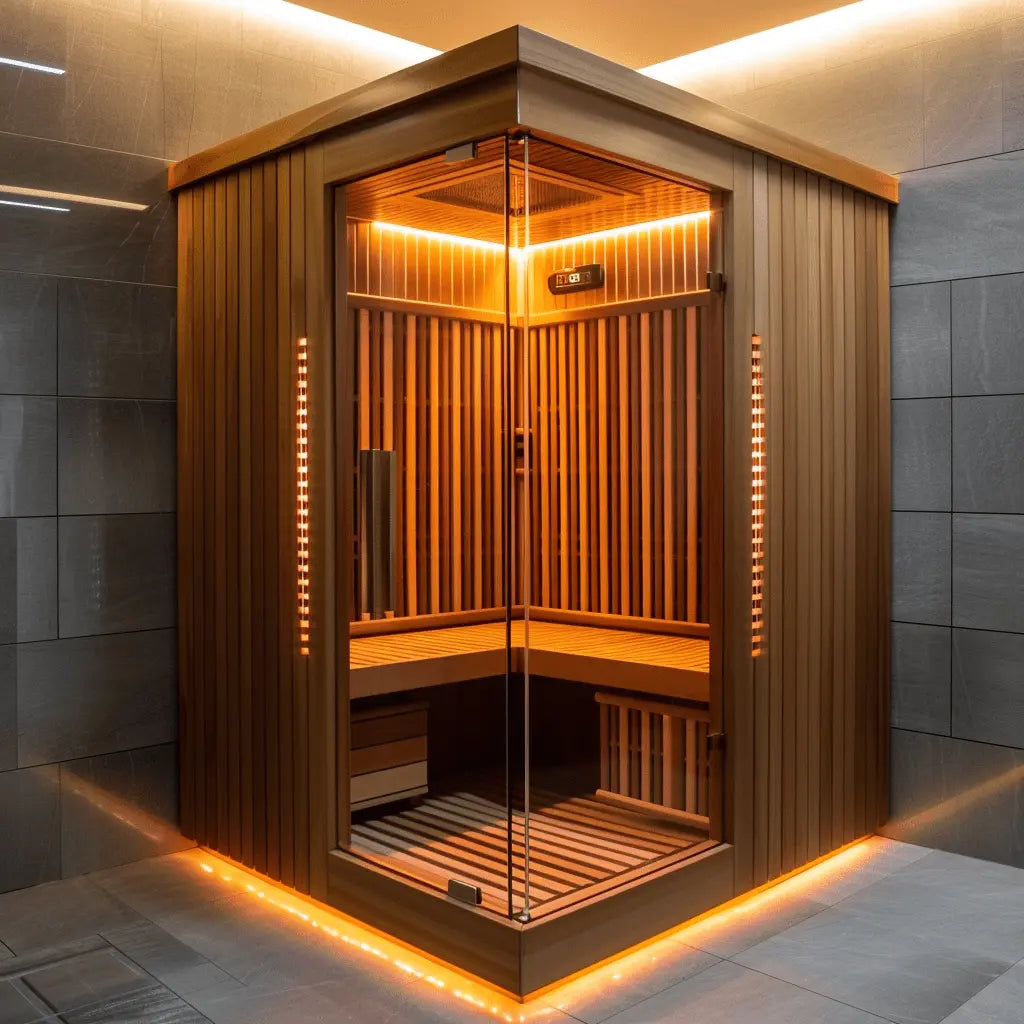
Understanding the potential dangers of infrared saunas
While infrared saunas offer a multitude of health benefits, such as relaxation, pain relief, and improved circulation, there are potential dangers to be aware of when deciding whether this wellness practice is right for you. It's essential to understand these risks before stepping into an infrared sauna to ensure that your experience is both safe and enjoyable.
Possible Dehydration Risks
Infrared saunas work by using infrared light to penetrate your skin, heating the body from within rather than solely relying on the heat of the surrounding air. While this efficient method provides numerous advantages, it also contributes to increased sweating, which can lead to dehydration if not adequately addressed.
Signs of Dehydration in an Infrared Sauna
If you're experiencing any of the following symptoms during or after your infrared sauna session, you may be at risk for dehydration:
- Dizziness or lightheadedness
- Headache
- Dark yellow urine or decreased urination
- Extreme thirst
- Fatigue or weakness
Preventing Dehydration in an Infrared Sauna
Fortunately, there are simple steps you can take to minimize your risk of becoming dehydrated during an infrared sauna session:
- Drink plenty of water before, during, and after your session to replenish lost fluids.
- Avoid alcohol and caffeine prior to your sauna visit, as these substances can increase dehydration.
- Limit your time spent in the sauna to a maximum of 15-20 minutes, especially if you're new to this type of wellness practice.
- Monitor your body's response during the session and exit the sauna if you begin to feel any discomfort or symptoms of dehydration.
Blood Pressure Changes
Infrared saunas can cause warming effects on blood vessels, leading to an increase in circulation. Although increased blood flow is generally considered beneficial, it can result in unexpected changes to your blood pressure.
High Blood Pressure Risks
For those who have high blood pressure or hypertension, entering an infrared sauna may cause an additional increase in pressure levels, presenting potential health risks. While some studies show that regular infrared sauna use can lower overall blood pressure over time, it's essential to consult with your healthcare provider before beginning any new wellness practice if you are living with high blood pressure.
Low Blood Pressure Risks
Conversely, individuals with low blood pressure might experience a temporary decrease in their pressure levels upon exiting the infrared sauna due to the rapid cooling effect on the body. This sudden change in blood pressure could lead to dizziness, fainting, or falls. To help prevent these issues, gradually cool down and take your time exiting the sauna instead of stepping out quickly.
Selecting the Appropriate Sauna Temperature
With various types of saunas available, making the right choice of temperature settings is crucial for avoiding potential dangers related to excessive heat exposure. Infrared saunas typically operate at lower temperatures than traditional saunas, ranging from 110°F - 140°F (43-60°C). When using an infrared sauna for the first time, setting the temperature closer to the lower end of this range can reduce the likelihood of overheating or experiencing uncomfortable side effects.
Managing Heat Sensitivity
People with heat sensitivity or pre-existing health conditions may find the intense heat generated inside an infrared sauna overwhelming. For these individuals, considering alternatives like steam rooms or warm baths may pose a safer option for therapeutic heat exposure. Always consult your healthcare provider if you have any concerns about whether using an infrared sauna is suitable and safe for your personal health circumstances.
Be Aware of Potential Interactions with Medications
Certain medications may increase your risk of experiencing adverse reactions during infrared sauna use. For example, diuretics can exacerbate dehydration risks, while blood pressure medications might interact unexpectedly with alterations in pressure levels during a session. Consult with your doctor to ensure that it's safe to use an infrared sauna based on any prescribed medications you're taking.
Pregnancy Considerations
Although pregnant women sometimes find relief from common prenatal discomforts by using saunas, there is a lack of conclusive research regarding the safety of infrared saunas for expecting mothers. Some studies suggest increased risks associated with extreme heat exposure during pregnancy, such as neural tube defects in early development stages and preterm labor later on. Always consult with your healthcare professional before incorporating the use of infrared saunas into your prenatal care routine.
In conclusion, while infrared saunas provide valuable health benefits for many individuals, being aware and cautious of potential dangers is key to having a safe and enjoyable experience. Proper hydration management, monitoring blood pressure changes, understanding appropriate temperature settings, and consulting with healthcare professionals regarding medical concerns are essential practices to mitigate these risks.
0 comments
Disclaimer
The information in this article is for educational and informational purposes only. If this article discusses psychedelics, supplements, or wellness practices, it is not intended to promote, endorse, or encourage illegal activities or unverified health claims.
n0glitch does not sell or distribute psychedelic substances and does not provide medical, legal, or professional advice. Always consult a qualified healthcare provider before making health-related decisions.
Laws regarding psychedelics and supplements vary by country and region. Please research and comply with local regulations.












